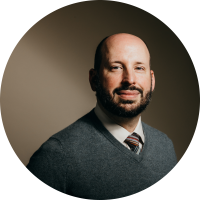
Brian Fairley (he/him/his) studies song, sound, and media across historical and ethnographic settings. In his work on traditional singing from the Republic of Georgia in the Caucasus, Brian brings together approaches from ethnomusicology, historical musicology, sound studies, and media archaeology. His manuscript in progress, Separating Sounds: A Media History of Georgian Polyphony, excavates a series of experimental recordings of Georgian music from 1916 to today, showing how prominent scholars and scientists repeatedly tried to capture this elusive musical tradition on record. In a narrative spanning the Habsburg, Romanov, and Soviet empires—and reaching forward to Georgia’s post-independence present—this book rewrites the early history of multitrack sound technology while untangling thorny questions of race, nation, and musical identity in an intellectually vital crossroads of Eurasia. Additional research projects include a critique of the concept of polyphony across domains of literary and social theory (listen to my interview on the High Theory podcast here) and an article on sound installations by the Canadian artist Janet Cardiff.
Brian’s research has received funding from the Social Science Research Council’s International Dissertation Research Fund and the Wenner Gren Foundation. The opening chapter from his dissertation, on sound recordings captured in a prisoner-of-war camp in World War I, received the 2023 award for best dissertation chapter from the journal Ab Imperio. His articles have appeared in the journals Ethnomusicology, Ethnomusicology Review, and Theoria: Historical Aspects of Music Theory, in addition to forthcoming work in the Journal of Sonic Studies and an edited volume on antiracist approaches to music theory.
